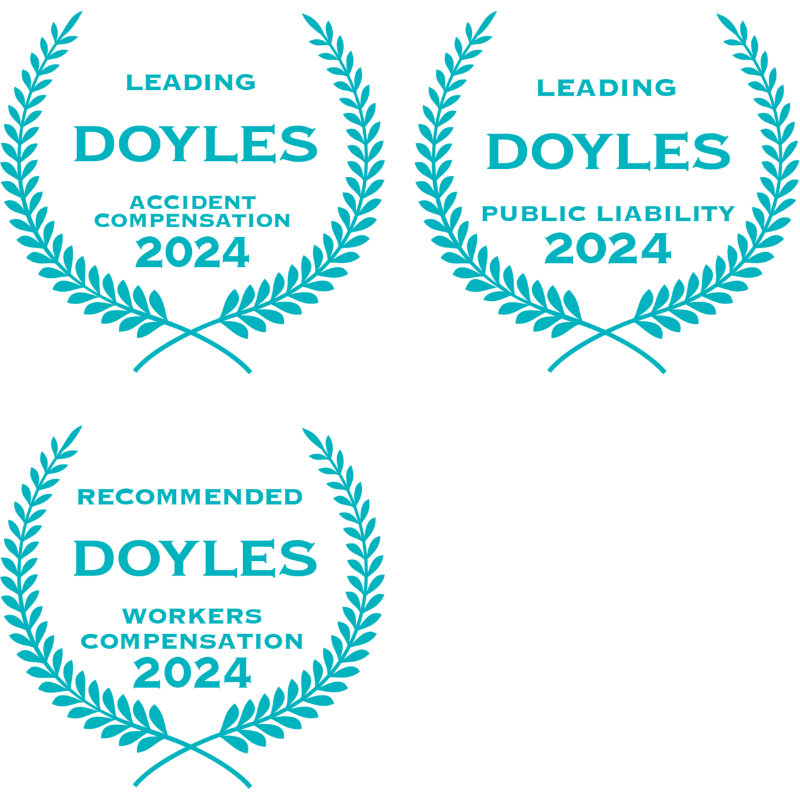Common Mistakes to Avoid After a Motor Vehicle Accident
Being involved in a motor vehicle accident can be a stressful and overwhelming experience. In such situations, it’s easy to make mistakes that could affect your ability to claim compensation and protect your legal rights. Unfortunately, these errors can have long-term consequences, potentially impacting your recovery and the outcome of any claims you make.
Let’s discuss the most common mistakes people make after a car accident and how you can avoid them to ensure your rights are protected, your injuries are documented, and you maximise your chances of receiving fair compensation.
1. Not Getting the Other Driver’s Details
One of the most crucial steps after an accident is exchanging details with the other driver involved. Failing to do so can significantly complicate the claims process and make it difficult to pursue compensation.
What You Should Do:
- Collect the Other Driver’s Information: Ensure you get their full name, contact number, address, driver’s licence number, vehicle registration, and insurance details. This information will be essential for lodging your claim and proving the other driver’s involvement in the accident.
- Check for Accuracy: Verify the information they provide by checking their driver’s licence and registration papers. It’s also a good idea to take a photo of their licence and registration for your records.
Key Tip: If the other driver refuses to provide their details or drives off, report the incident to the police as soon as possible.
2. Not Taking Photographs of the Accident Scene
Failing to capture photographic evidence of the accident scene is another common mistake. Photos can provide valuable evidence of how the accident occurred, the damage to the vehicles, and any contributing factors, such as road conditions or traffic signs.
What You Should Do:
- Take Photos Immediately: Use your smartphone to take clear pictures of the accident scene, the damage to all vehicles involved, the positions of the cars, any skid marks, debris, or road conditions, and any visible injuries you may have sustained.
- Capture Different Angles: Take photos from multiple angles and distances to ensure you have a comprehensive record of the scene. This can help establish the cause of the accident and prove the extent of the damage.
Key Tip: If you’re unable to take photos yourself due to your injuries, ask a bystander or a passenger to take them for you.
3. Delaying Medical Treatment
One of the biggest mistakes people make after an accident is delaying medical treatment, especially if their injuries seem minor at first. This can not only worsen your condition but also impact your ability to make a successful compensation claim.
What You Should Do:
- Seek Medical Attention Immediately: Even if you think your injuries are minor, see a doctor as soon as possible after the accident. Some injuries, such as whiplash or internal injuries, may not be immediately apparent but could become more severe over time.
- Follow Your Doctor’s Advice: Ensure you follow all treatment recommendations, attend follow-up appointments, and take prescribed medication. This not only aids in your recovery but also provides a clear record of your injuries, which is crucial for your claim.
Key Tip: Keep all medical records, reports, receipts, and prescriptions, as these documents will support your claim and demonstrate the extent of your injuries.
4. Delaying Getting Legal Advice
Many people make the mistake of not seeking legal advice promptly after a car accident, often believing they can handle the claims process on their own. However, navigating the legal and insurance processes can be complex, and delaying legal advice can result in missed deadlines, lost evidence, or accepting a lower settlement than you deserve.
What You Should Do:
- Contact a Personal Injury Lawyer Promptly: Engaging a lawyer early on ensures that you receive the right guidance from the outset, helping you understand your rights, gather evidence, and navigate the claims process effectively.
- Avoid Settling Directly with the Insurer: Insurance companies often aim to settle claims quickly and for the lowest amount possible. Having a lawyer on your side means you have someone who can negotiate on your behalf and fight for fair compensation.
Key Tip: Many personal injury lawyers offer a free initial consultation, allowing you to discuss your case and understand your options without any financial commitment.
Other Mistakes to Avoid
In addition to the main mistakes mentioned above, there are a few other errors that people commonly make after an accident:
- Not Reporting the Accident to the Police: Always report the accident to the police, especially if there are injuries or significant damage. The police report will serve as an important piece of evidence when making your claim.
- Not Notifying Your Insurer: Even if you’re not at fault, notify your vehicle property damage insurer about the accident as soon as possible.
- Admitting Fault at the Scene: Avoid making statements that could be interpreted as admitting fault, such as apologising or saying you weren’t paying attention. Fault will be determined based on evidence, so it’s best to stick to the facts when discussing the accident.
Key Takeaways
- Get the Other Driver’s Details: Always collect the other driver’s information, including their licence and insurance details, to ensure you have the necessary information for your claim.
- Take Photos of the Accident Scene: Capture clear and detailed photographs of the vehicles, injuries, and surroundings to provide essential evidence.
- Seek Medical Attention Promptly: Always seek medical treatment, even for minor injuries, and keep detailed records of your treatment and recovery.
- Get Legal Advice Early: Engaging a personal injury lawyer early can help you navigate the claims process, protect your rights, and maximise your compensation.
By avoiding these common mistakes, you’ll be in a much stronger position to protect your rights, gather the evidence needed for your claim, and ensure you receive fair and adequate compensation for your injuries and losses. If you’ve been involved in a motor vehicle accident and are unsure about the next steps, don’t hesitate to seek professional legal advice to guide you through the process.


